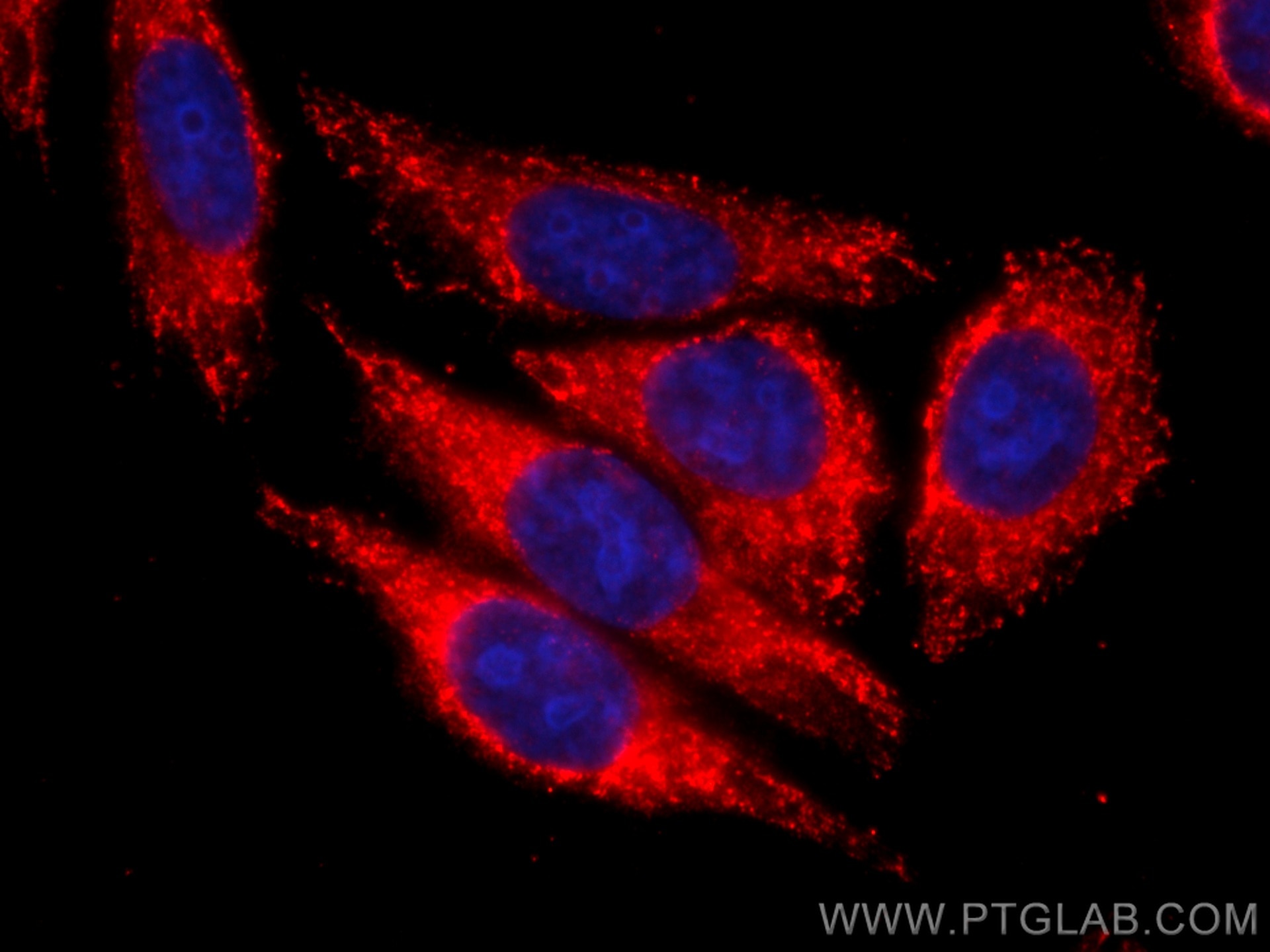Anticorps Monoclonal anti-APOL1-Specific
APOL1-Specific Monoclonal Antibody for IF
Hôte / Isotype
Mouse / IgG2a
Réactivité testée
Humain
Applications
IF
Conjugaison
CoraLite®594 Fluorescent Dye
CloneNo.
1G12D11
N° de cat : CL594-66124
Synonymes
Galerie de données de validation
Applications testées
| Résultats positifs en IF | cellules HepG2, |
Dilution recommandée
| Application | Dilution |
|---|---|
| Immunofluorescence (IF) | IF : 1:50-1:500 |
| It is recommended that this reagent should be titrated in each testing system to obtain optimal results. | |
| Sample-dependent, check data in validation data gallery | |
Informations sur le produit
CL594-66124 cible APOL1-Specific dans les applications de IF et montre une réactivité avec des échantillons Humain
| Réactivité | Humain |
| Hôte / Isotype | Mouse / IgG2a |
| Clonalité | Monoclonal |
| Type | Anticorps |
| Immunogène | APOL1-Specific Protéine recombinante Ag2016 |
| Nom complet | apolipoprotein L, 1 |
| Masse moléculaire calculée | 44 kDa |
| Poids moléculaire observé | 39-45 kDa |
| Numéro d’acquisition GenBank | BC017331 |
| Symbole du gène | APOL1 |
| Identification du gène (NCBI) | 8542 |
| Conjugaison | CoraLite®594 Fluorescent Dye |
| Excitation/Emission maxima wavelengths | 588 nm / 604 nm |
| Forme | Liquide |
| Méthode de purification | Purification par protéine A |
| Tampon de stockage | PBS avec glycérol à 50 %, Proclin300 à 0,05 % et BSA à 0,5 %, pH 7,3. |
| Conditions de stockage | Stocker à -20 °C. Éviter toute exposition à la lumière. Stable pendant un an après l'expédition. L'aliquotage n'est pas nécessaire pour le stockage à -20oC Les 20ul contiennent 0,1% de BSA. |
Informations générales
Human apolipo-protein L1 (APOL1) is a minor component of plasma high density lipoprotein (HDL) particles, acting as an interacting protein of apolipoprotein A1 (ApoA1). The human ApoL protein family was thought to be predominantly involved in lipid transport and metabolism. APOL1 is also involved in host innate immunity against Trypanosoma parasites. Once activated, APOL1 can lyse the parasite and protect human from infection. Genetic variants in APOL1 gene, which are found in African ancestry with high frequency, associate with chronic kidney disease, like focal segmental glomerulosclerosis (FSGS), HIV-associated nephropathy (HIVAN), and hypertensive nephropathy. APOL1 share structural and functional similarities with proteins of the Bcl-2 family and may has roles in apoptosis and autophagy. It is notable that APOL1 exists only in human and a few other primate species, and mouse does not express an APOL1 orthologue. This antibody recognizes the endogenous ApoL1 of 39-45 kDa in blood lysate. This antibody is specific to APOL1.
Protocole
| Product Specific Protocols | |
|---|---|
| IF protocol for CL594 APOL1-Specific antibody CL594-66124 | Download protocol |
| Standard Protocols | |
|---|---|
| Click here to view our Standard Protocols |


